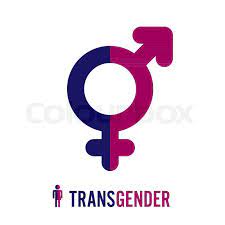Hormones play a crucial role in every woman’s life, influencing everything from mood to metabolism. Understanding the various types of hormones and their functions can help women take charge of their health and well-being. In this article, we’ll explore the primary hormones found in women, how they interact, and what happens when they go out of balance. So, let’s dive into the fascinating world of female hormones!
Understanding Hormones: The Female Hormonal Landscape
Hormones are chemical messengers produced by glands in the endocrine system. They travel through the bloodstream to tissues and organs, regulating a plethora of bodily functions. In women, hormones are particularly significant because they govern reproductive health, menstrual cycles, pregnancy, and even mood fluctuations. While many may think of hormones as a purely reproductive element, they also play roles in metabolism, energy levels, and emotional well-being.Estradiol Levels In MenWhat Causes Transgender
The female hormonal landscape is complex and dynamic, marked by cyclical changes throughout a woman’s life. From puberty to menopause, various hormones rise and fall, creating a unique symphony of physiological changes. Understanding how these hormones interact and influence each other can empower women to better manage their health, identify potential imbalances, and seek appropriate solutions.
Estrogen: The Star Player in Women’s Health
Estrogen is often touted as the star player in women’s health, and for good reason! This hormone is primarily responsible for the development of female secondary sexual characteristics, such as breasts and wider hips. It also plays a significant role in regulating the menstrual cycle, stimulating the growth of the uterine lining. High estrogen levels can boost mood, enhance libido, and even promote healthy skin.
However, too much or too little estrogen can lead to various health issues. High levels may increase the risk of certain cancers, while low levels can result in symptoms like hot flashes and mood swings. Maintaining a balanced level of estrogen is crucial, and women can achieve this through a healthy diet, regular exercise, and, in some cases, hormone therapy under medical supervision.
Progesterone: Balancing Act in the Menstrual Cycle
Progesterone is another essential hormone that works in tandem with estrogen. Produced primarily by the ovaries after ovulation, progesterone prepares the uterine lining for a potential pregnancy. If pregnancy doesn’t occur, progesterone levels drop, leading to menstruation. This balance of hormones is vital not just for reproductive health, but also for emotional stability.
When progesterone levels are too low, women may experience symptoms such as anxiety, irregular menstruation, or difficulty in conceiving. Conversely, elevated levels of progesterone can lead to fatigue and weight gain. Understanding the importance of progesterone in the menstrual cycle can help women recognize signs of imbalance and seek treatment options, such as dietary changes or supplementation.
Testosterone: The ‘Hidden’ Hormone in Women
While testosterone is often associated with men, it’s a crucial hormone for women too, albeit in much lower amounts. Produced in the ovaries, adrenal glands, and peripheral tissues, testosterone contributes to libido, energy levels, and muscle strength. It plays a role in maintaining bone density and overall well-being, making it a key player in women’s health that often goes unnoticed.
Low testosterone levels in women can lead to fatigue, decreased libido, and mood irregularities. It’s a common misconception that testosterone is only about aggression and masculinity; in women, it plays a vital role in sexual health and emotional balance. Women experiencing symptoms related to low testosterone should consult with healthcare professionals who can evaluate hormone levels and explore appropriate treatments.
Insulin: Managing Energy and Metabolism in Women
Insulin is a hormone produced by the pancreas that regulates blood sugar levels and plays a vital role in energy management. For women, insulin also affects how the body processes carbohydrates and fats, making it a key player in metabolism. Proper insulin function is crucial for maintaining energy levels throughout the day, and imbalances can lead to conditions such as insulin resistance and Type 2 diabetes.
When insulin levels are not functioning optimally, women may experience fatigue, weight gain, and cravings for sugary foods. Learning to manage insulin through diet and exercise is essential for energy regulation. Incorporating whole foods with a low glycemic index and regular physical activity can help keep insulin levels stable, promoting overall health.
Thyroid Hormones: Boosting Energy and Mood Levels
Thyroid hormones—specifically thyroxine (T4) and triiodothyronine (T3)—are vital for regulating metabolism, energy production, and mood stabilization. The thyroid gland, located in the neck, produces these hormones in response to signals from the pituitary gland. An optimal balance of thyroid hormones supports not only physical energy but also emotional health, influencing everything from weight to mood.
When thyroid hormones are out of balance, women can face various challenges. Hypothyroidism, characterized by low levels of thyroid hormones, can lead to fatigue, weight gain, and even depression. On the other hand, hyperthyroidism can cause weight loss, anxiety, and irritability. Regular check-ups and blood tests can help monitor thyroid function, allowing women to take the necessary steps to maintain optimal hormone levels.
Cortisol: The Stress Hormone and Its Impact on Women
Cortisol is often referred to as the “stress hormone” because it’s released in response to stress. Produced by the adrenal glands, cortisol plays a crucial role in various bodily functions, including metabolism, immune response, and blood pressure regulation. In small amounts, cortisol can provide energy and help women cope with daily challenges. However, chronic stress can lead to elevated cortisol levels, creating a cascade of negative effects.
High levels of cortisol can disrupt sleep, contribute to weight gain, and lead to mood disorders, making stress management essential for women’s health. Techniques such as mindfulness, meditation, and regular physical activity can help lower cortisol levels and restore balance. Recognizing the impact of stress on hormone levels is the first step toward healthier living.
Hormonal Imbalance: Signs, Symptoms, and Solutions
Hormonal imbalances can manifest in various ways, affecting everything from mood to menstrual cycles. Common signs of imbalance include irregular periods, extreme fatigue, mood swings, and unexplained weight fluctuations. These symptoms can sometimes be dismissed as everyday stress, but they may indicate underlying hormonal issues that need to be addressed.
Finding solutions for hormonal imbalance often involves a multi-faceted approach. Women should prioritize a balanced diet, stay physically active, manage stress, and consult healthcare providers for proper testing and guidance. Sometimes, medical interventions—like hormone replacement therapy or natural supplements—may also be necessary. Being proactive about hormonal health can lead to better overall well-being.
Understanding the various hormones in women helps demystify how our bodies function and react to changes in our environment. By being aware of these hormones and their impacts, women can take proactive steps towards maintaining hormonal balance. Whether it’s through lifestyle changes, dietary adjustments, or medical support, taking control of hormonal health can lead to a happier, healthier life.

